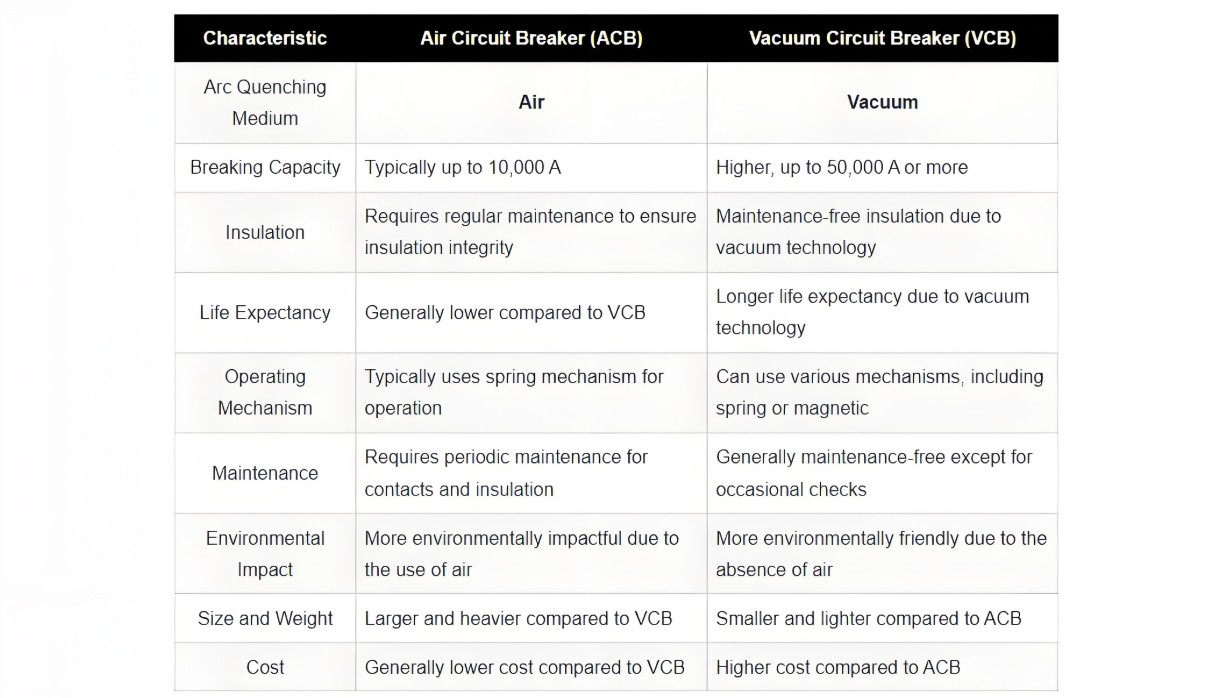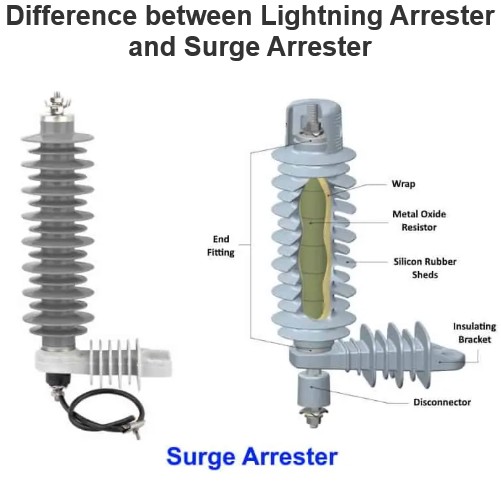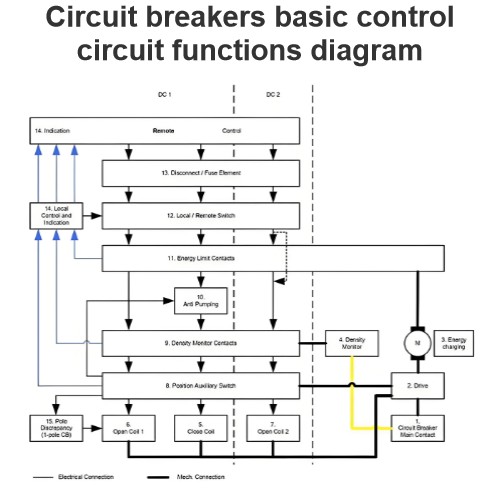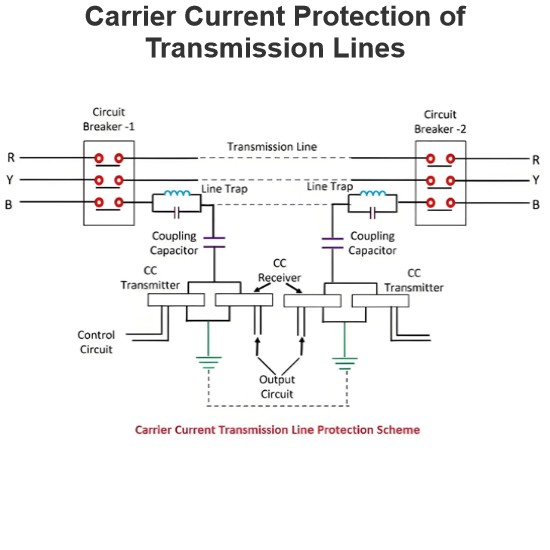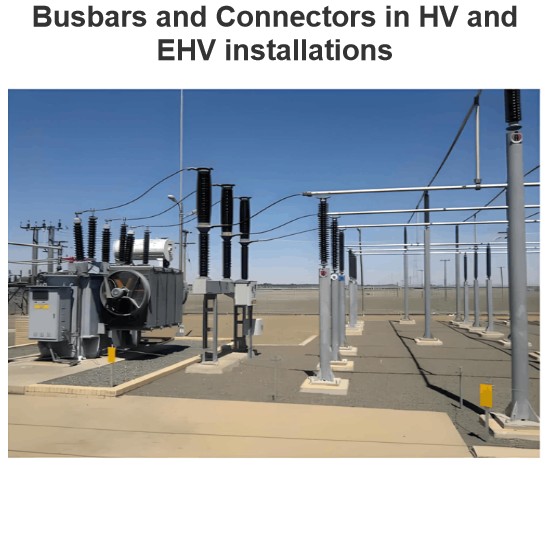Why Use VCB Circuit Breakers in HV Transmission, & Not ACB?
What is an Air Circuit Breaker (ACB)?
An Air Circuit Breaker (ACB) is a specific kind of circuit breaker. It employs air as the medium for extinguishing electrical arcs. The primary function of an ACB is to safeguard electrical circuits from various issues such as overloads, short - circuits, and other fault conditions. ACBs are widely utilized in both low - voltage and high - voltage electrical systems. They are well - recognized for their dependable performance and the ease with which they can be maintained, making them a popular choice in many electrical installations.
What is a Vacuum Circuit Breaker (VCB)?
A Vacuum Circuit Breaker (VCB) is another type of circuit breaker. It utilizes a vacuum environment to extinguish electrical arcs. Similar to ACBs, VCBs are designed to protect electrical circuits from overloads, short - circuits, and other faults. VCBs are distinguished by their high breaking capacity, which allows them to handle large fault currents effectively. They also have a compact physical size, which is beneficial in space - constrained installations. Moreover, they offer maintenance - free operation, reducing the long - term upkeep requirements. VCBs are commonly employed in medium - voltage electrical applications.
Comparison Between VCBs and ACBs
The following is a comparison table that outlines the key characteristics of Air Circuit Breakers (ACBs) and Vacuum Circuit Breakers (VCBs), enabling a clear understanding of their differences and similarities for better decision - making in electrical system design and selection.
Why are VCBs Predominantly Used in High - Voltage (HV) Transmission Systems Instead of ACBs?
Vacuum Circuit Breakers (VCBs) are favored over Air Circuit Breakers (ACBs) in high - voltage transmission lines, power plants, substations, and typical power systems for several compelling reasons:
High Dielectric Strength
VCBs possess significantly higher dielectric strength than ACBs. This characteristic enables them to interrupt fault currents with exceptional efficiency, minimizing the risk of arcing and electrical breakdown, particularly in high - voltage applications. Their superior dielectric properties ensure reliable operation under extreme electrical stress, safeguarding the integrity of the high - voltage system.
Low Maintenance and Extended Service Life
One of the key advantages of VCBs is their minimal maintenance requirements compared to ACBs. VCBs feature fewer moving parts, eliminating the need for components such as arc chutes that demand regular cleaning and replacement in ACBs. Unlike ACBs, VCBs do not require refilling of oil, gas, or other substances. The internal components of VCBs are protected from wear and tear, as well as corrosion, since they are not exposed to moisture and air. This protection extends the overall service life of VCBs, reducing downtime and maintenance costs over the long term.
Faster Operation
In high - voltage transmission systems, the ability to isolate faults rapidly is crucial for preventing damage to expensive equipment and maintaining system stability. VCBs offer significantly faster operating times than ACBs. Their quick response allows for immediate disconnection of faulty sections of the grid, minimizing the impact of faults and enhancing the overall reliability of the power system.
Compact Size and Lower Cost
VCBs are more compact in design compared to ACBs, making them an ideal choice for installation in high - voltage switchgear where space is often at a premium. Their smaller footprint allows for more efficient use of limited cabinet space, enabling the construction of more densely packed and space - optimized electrical installations. Additionally, due to their compact design and reduced material requirements, VCBs have lower operational costs than ACBs. This combination of space - saving and cost - effectiveness makes VCBs an attractive option for high - voltage applications.
Cost - Efficiency
Thanks to their lower energy consumption, minimized heat and noise generation, compact form factor, and reduced material needs, Vacuum Circuit Breakers (VCBs) incur lower operational costs compared to Air Circuit Breakers (ACBs). This economic advantage makes VCBs a more attractive option for long - term power system management, as they reduce energy waste and lower the expenses associated with equipment upkeep and operation.
Reliability and Environmental Friendliness
VCBs outperform ACBs in terms of safety and reliability. Unlike ACBs, which can pose fire risks due to the production of flames and sparks when contacts open and close, VCBs operate in a vacuum environment. This eliminates the potential for such hazardous incidents, providing a safer electrical system. Additionally, VCBs are less susceptible to mechanical failures. Their robust design and fewer moving parts contribute to a lower likelihood of breakdowns, ensuring extended service life and uninterrupted operation.
From an environmental perspective, VCBs excel during the arc - quenching process. They do not generate pollution or release harmful gases into the atmosphere, making them a more eco - friendly choice for power transmission and distribution. This environmentally conscious operation aligns with modern sustainability goals and reduces the ecological footprint of electrical infrastructure.
In summary, the combination of VCBs' superior performance, enhanced reliability, and minimal maintenance requirements positions them as the preferred option for high - voltage transmission systems. Their ability to meet the demanding needs of these critical power networks while also offering economic and environmental benefits solidifies their importance in the electrical industry.
The Electricity Encyclopedia is dedicated to accelerating the dissemination and application of electricity knowledge and adding impetus to the development and innovation of the electricity industry.

